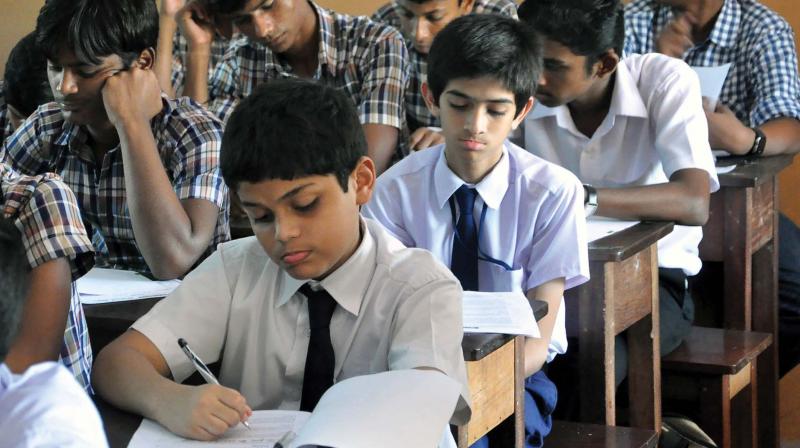Learning trends: It's Guru vs Google

Kozhikode: They are called the Google Generation or rather WhatsApp generation. They have everything on the fingertips and gone are the days when students came to know about a topic only when the teacher taught them. It is with a kind of trepidation that today's teachers face their students. They don’t know what doubt the students will raise after having read up on a subject through Google search.
Thus in order to take a class, teachers need a lot more preparation than 15 or 17 years ago. DC finds out what challenges teachers face in new class management, and handling a generation on different fronts including on discipline and when students have access to a lot of technology gadgets.
“The attitude differences in children, especially those of students after High School disturb teachers greatly. Since they are more exposed to various things as compared to teachers they tend to overpower or ignore classes”, observed Leena Jacob, an educational councilor in Kozhikode. “We consider this as a major challenge and even a positive challenge for us to update ourselves. Even the introduction of the smart board is a good way of luring the attention of students as visuals seem to be more effective than oral lectures”, she added.
But Sebastine John, Faculty at St Joseph’s Boys Higher Secondary School, Kozhikode has a different opinion. “I have been into teaching for the last 15 years and in all these years I have not experienced any kind of teaching transformation or a change in the class management, inspite of the drastic intervention of technology”.
Schools have attempted to keep up with social changes by altering the curriculum using different management strategies and making better use of child psychology and physiology. But often teachers find it difficult to deal with students who seem more interested in general things rather than academics specifically.
Not so positive was that the student’s capacity to ask doubts about academics because that has come down compared to earlier. Instead more questions were asked about gadgets, branded attire and vehicles, he added.
“The classroom has changed to a great extent in all these years. Curricula evolve and new teaching methodologies are developed to reach this generation which spends as much time stimulated by digital media. Every day teachers encounter new problems and issues involving students”, said Murali Krishna, Koyilandy Girls HSS faculty.
“In my experience of more than a decade in teaching, I have seen there is a big gap in the behaviour of students towards academics and also in their life. Recently, I had to take action against a student in our school who came up with crocs branded shoes that cost more than Rs 4000. He tended to show off the brand he was wearing, which indirectly had a negative influence on students. This shows the interest of the students towards brands rather the academics,” he added.
Speaking about the influence of smart classrooms in schools and how it has become beneficial for teachers, Kendriya Vidyalaya, Kozhikode faculty Krishna Kumar said, “The traditional approach of lecture and note taking has lost its effectiveness as modern day education has grown. In the present era, to drag the attention of students through oral lectures is not possible and smart boards help us in a great way to overcome this difficulty. Through the process, learners activate and build background knowledge, process information, transform their learning into a product that shows what they know, and reflect on their learning.”
It is a new vision in education. The use of Education technology has seen a huge change in education. Internet and e-learning devices were making the classroom environment amazing,” he added.

